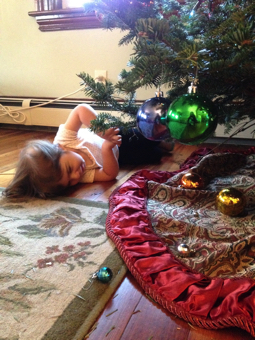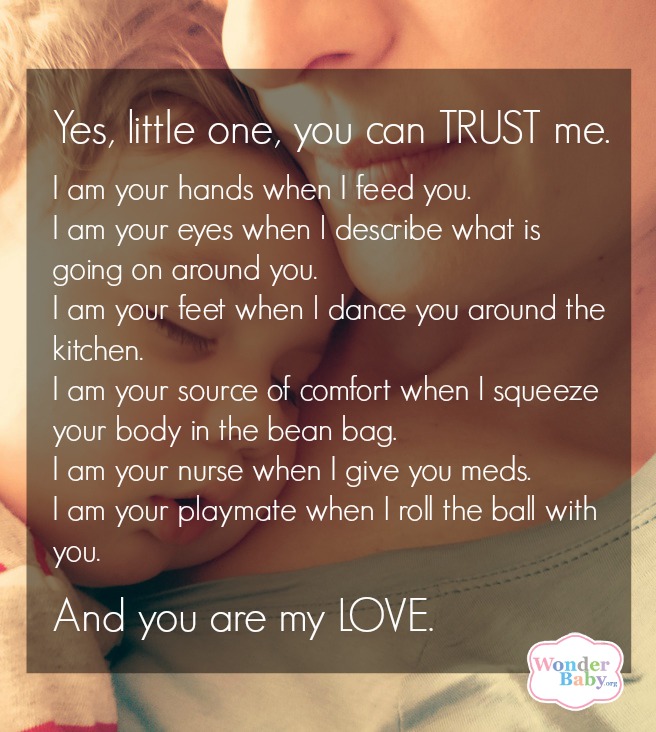Something Happened While I was Waiting for My Daughter to Tell Me She Loves Me

 A few weeks ago at OT Shelby was on the swing and her therapist prompted her to reach out and grasp the rope. Shelby didn’t—no surprise there. I was sitting in front of her so I said something like, “OK Shelby I’m going to grab your hand, put it on the rope and give you a squeezie.” While she swung I rhythmically squeezed her hands and said “Squeezeeeee.”
A few weeks ago at OT Shelby was on the swing and her therapist prompted her to reach out and grasp the rope. Shelby didn’t—no surprise there. I was sitting in front of her so I said something like, “OK Shelby I’m going to grab your hand, put it on the rope and give you a squeezie.” While she swung I rhythmically squeezed her hands and said “Squeezeeeee.”
After 15 seconds or so she started fussing and I stopped, then I tried again, and again, and again because she tolerated it pretty well. During this her OT said something that has stuck with me: “Shelby trusts you so much. She just let you do that, that is something she would never let me do to her.”
I began thinking about this dynamic of our relationship and it blew me away because I never thought about trust. I am her hands when I feed her. I am her eyes when I describe what is going on around her. I am her feet when I dance her around the kitchen. I am her source of comfort when I squeeze her body in the bean bag. I am her nurse when I give her meds. I am her playmate when I roll the ball with her. I knew I had these rolls in her life, but I never thought of them in terms of her trusting me to be them.
I used to long for Shelby to express her love for me, and she has started to, but now I realize that her trust in me is her greatest expression of love for me.
Have you thought about all the trust your child puts in you? And how much that means she loves you?
Nicole Feeney writes about how God grew the Feeney family from two to four to five in two quick years… and the subsequent adventures on her blog, Fab Feeney Five.

Related Posts

Eye Conditions and Syndromes, Visual Impairment
Neuralink Announces Plans to Restore Sight to the Blind with Brain Chip
Elon Musk’s company Neuralink has announced plans to begin human trials of its new “Blindsight” brain chip by the end of 2025.

Special Needs
5 Spring Cleaning Tips for Families of Children with Disabilities
Spring cleaning is an opportunity to create a more accessible, organized, and supportive space for your child with disabilities. Declutter, deep clean, and refresh!

Visual Impairment
The Gift of Understanding: How a Young Child Helps His Blind Father Navigate Life
When a parent is blind, it’s natural for people to wonder how their sighted child will adapt. Will they struggle to understand their parent’s needs? Will they feel burdened by...